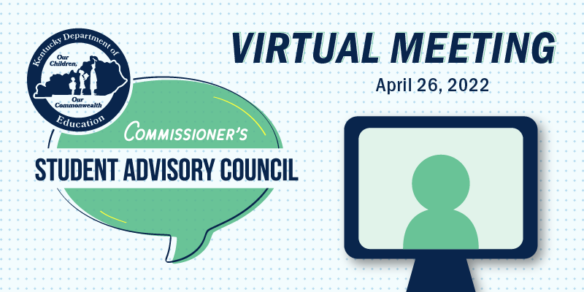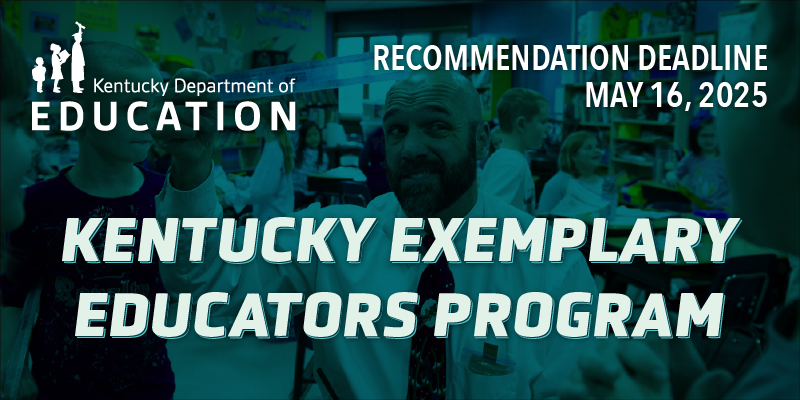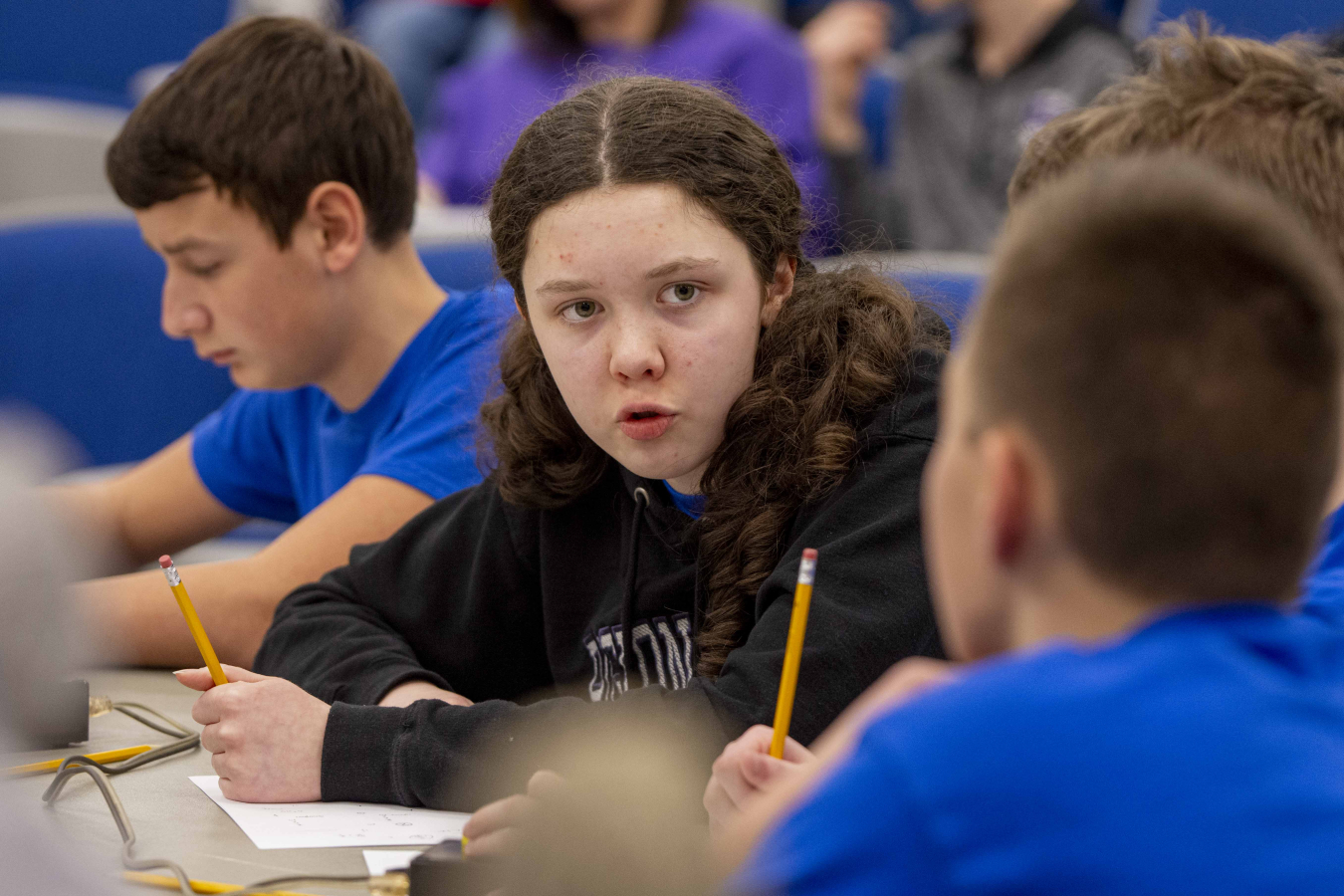 Students on the Kentucky Department of Education’s (KDE’s) Commissioner’s Student Advisory Council (SAC) provided feedback on the exploration of a state level portrait of a learner/graduate at their April 26 meeting. A portrait of a graduate is a vision statement describing what a learner should know and be able to do before they graduate high school.
Students on the Kentucky Department of Education’s (KDE’s) Commissioner’s Student Advisory Council (SAC) provided feedback on the exploration of a state level portrait of a learner/graduate at their April 26 meeting. A portrait of a graduate is a vision statement describing what a learner should know and be able to do before they graduate high school.
Sarah Snipes, a program manager in KDE’s Division of Innovative Learning, shared the “Anchor Competencies” formed by the work of the Kentucky Competency Education and Assessment Consortium that created the portrait of a graduate foundation. In their research, the consortium found five core competencies for a statewide portrait of a graduate: critical thinker, communicator, empowered learner, collaborator and engaged citizen.
Spandana Pavuluri, a junior at duPont Manual High School (Jefferson County), has experienced first-hand a form of the portrait of a graduate through Jefferson County Public Schools’ (JCPS’) Backpack of Success Skills.
The Backpack of Success Skills program is a digital platform for students to enter pictures, videos and a written reflection of what they have learned in five key areas: prepared and resilient learner; globally and culturally competent citizen; emerging innovator; effective communicator; and productive collaborator.
Pavuluri believes the students complete the requirements of the Backpack of Success Skills program naturally as they go through high school, but there could be more focus on how several traditionally non-academic skills impact students’ lives after graduation.
“When you go into a job or into the workforce, you want to be better equipped to deal with your mental health and fulfill the requirements of your job,” said Pavuluri. “There are things like being empathetic, more social and emotional things, that aren’t built into the workday because its solely academic.”
Ella Luking, a junior at Frankfort High School (Frankfort Independent), said that, much like at JCPS, Frankfort Independent’s profile of a graduate allows students to demonstrate their competencies in the six pillars of the program – critical thinking, personal responsibility, teamwork, citizenship, communication and problem solving – by uploading items in an evidence bank available to students, teachers and parents.
“When we gave proof [of the competencies] in our presentations, for some kids their critical thinking skills was a math problem they could show. For some kids, it was how they balance their work schedule or how they got their siblings to school on time, stuff that’s not as traditional,” said Luking. “It helped a lot of kids realize that they do have those skills, just not in traditional ways, and they are ready for the workforce.”
Students also shared feedback to Snipes about their thoughts and feelings on their schools’ current use of grades to show competency, opportunities to show teachers what they have learned and their schools’ graduation requirements.
“This really gets into a key element of United We Learn, which involves people in our communities, especially students, in decision making going forward,” said Kentucky Education Commissioner Jason E. Glass. “When we start thinking about what the concepts and skills are our students need going forward, what’s important to them and how we design an educational experience that gives them those skills and competencies, hearing from our students is really important.”
Glass said the focus of statewide guidance on a portrait of a graduate is to put systems in place for a “supportive ecosystem” and build upon efforts at the local level.
Legislative Update
KDE Director of Government Relations Brian Perry provided an overview on the 2022 regular session of the Kentucky General Assembly. Perry informed the students that career and technical education and early childhood literacy were the “big winners” of the biannual budget passed.
“Overall, it’s an excellent budget for education and it’s moving us in the right direction,” said Perry.
Students were especially interested in the implementation of House Bill (HB) 44, which allows local school districts’ attendance policies to include provisions for a student’s mental health or behavioral health status. The bill was signed by Gov. Andy Beshear on April 20.
Several students on the council worked with Lt. Gov. Jacqueline Coleman, Kentucky’s regional education cooperatives, the Department for Behavioral Health at the Cabinet for Health and Family Services, and the Division of Family Resource Youth Service Centers to create the Student Mental Health Action Summits. The roundtable summits were formed to hear from students directly and collect data that could be used to better address students’ mental health. One of the main recommendations from their findings was to allow mental health absences.
Though districts are not mandated to allow students to take mental health days, Perry is optimistic school districts will be receptive to the bill due to the bi-partisan support of a no-cost policy change. KDE will release guidance documents to districts in the summer to encourage districts to implement the provisions.
In other business, the council:
- Heard an update on the application process for the 2022-2023 SAC. KDE received nearly 100 applications from students across the Commonwealth.
- Welcomed a new member of to the SAC, Joud Dahleh. Dahleh, a sophomore at the Ignite Institute in Boone County, will serve as the next non-voting student member on the Kentucky Board of Education.




Leave A Comment